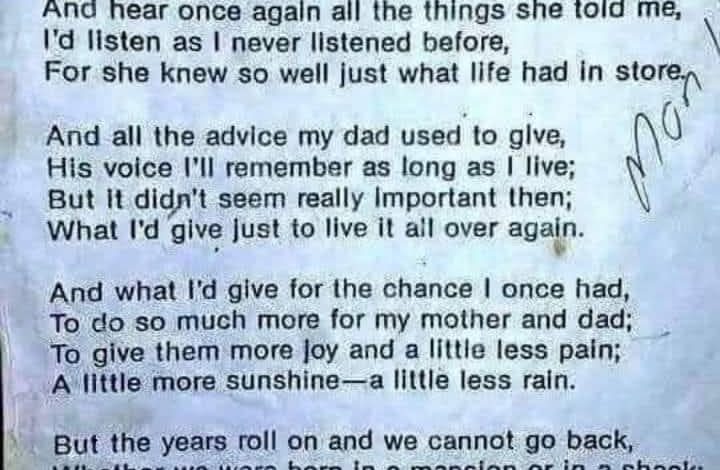The Nostalgic Power of Home and the Lessons of Time

ADVERTISEMENT
The Nostalgic Power of Home and the Lessons of Time
Introduction
Home is not just a place; it is a feeling, a collection of memories, and a foundation upon which we build our lives. The poem “Back Home!” beautifully captures the longing for the past, the deep appreciation for childhood, and the wisdom that often comes too late. It is a reflection on the love of family, the advice we once ignored, and the realization that time moves forward, never allowing us to return to those cherished moments. Yet, it also offers hope—reminding us that while we cannot go back, we can make the most of the present by spreading kindness and love.
The Longing for the Past
The poem begins with a heartfelt desire to turn back time and revisit the home of childhood. There is a special kind of love attached to the house where one grows up, a love that often goes unappreciated until much later in life. The warmth of childhood, the security of family, and the simplicity of those early days become treasures in our memory.
The lines about listening to a mother’s words resonate with many who, as children, did not fully grasp the wisdom in their parents’ guidance. The poem speaks to the universal experience of youthful ignorance—of dismissing parental advice only to later realize how valuable it was. The mother’s voice, once background noise, becomes something we long to hear again when we understand the depth of her care.
Similarly, the reference to a father’s advice is a poignant reminder of the lessons that often go unnoticed until we need them the most. The poem expresses a deep sense of regret, a wish to relive those moments, and an understanding that those small conversations held immense importance. This longing reflects the human tendency to take loved ones for granted, assuming they will always be there until they are not.
ADVERTISEMENT
The Realization of Time’s Unforgiving Nature
One of the most powerful messages in the poem is that time does not allow us to rewind. No matter where we were born or how much we wish to go back, life continues to move forward. The realization that we cannot return to childhood is both a painful truth and a necessary lesson. Instead of being consumed by regret, the poem encourages us to shift our focus to the present and make the most of the moments we still have.
The imagery of “more sunshine and a little less rain” conveys the desire to bring more happiness to parents while they are still with us. It is a plea to cherish loved ones while there is still time, to express gratitude, and to spread joy instead of sorrow. The poem teaches us that though we cannot change the past, we can influence the future by showing appreciation and love to those who matter most.
The Call to Action: Living with Kindness Today
The poem does not dwell in sorrow; instead, it ends with a hopeful message. It encourages us not to waste time regretting the past but to use the lessons learned to make today better. The most powerful takeaway is the idea of doing “good to others—TODAY.”
This call to action urges us to be more present, to mend broken relationships, and to express love while we still can. Life moves quickly, and rather than lamenting what is lost, we should embrace the opportunity to create new moments of joy. Whether it is spending more time with family, helping those in need, or simply being kinder, the message is clear—what we do today shapes the happiness of tomorrow.
Conclusion
“Back Home!” is more than just a poem; it is a reflection on the human experience of growing up, learning, and appreciating what we once had. It reminds us that home is not just a physical space but a collection of memories that shape who we are. While we may never return to the past, we can carry its lessons forward, using them to enrich our present and future.
ADVERTISEMENT
Instead of living with regret, we should cherish our loved ones, express gratitude, and be a source of joy and kindness. The poem’s final message is a simple yet profound truth: time is fleeting, and the best way to honor the past is by making today meaningful.




